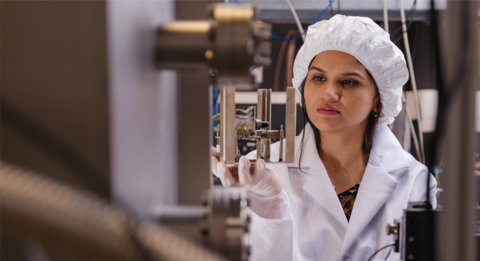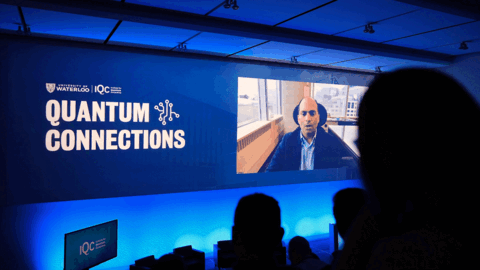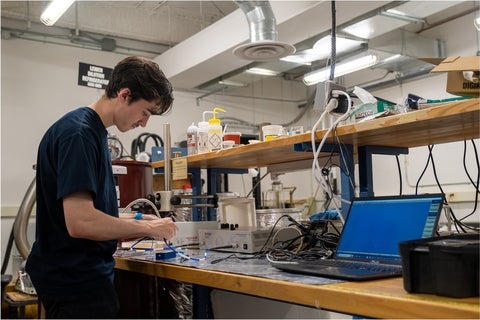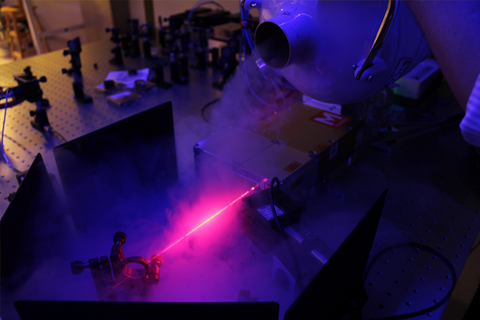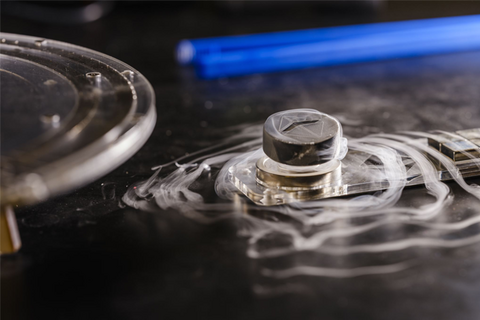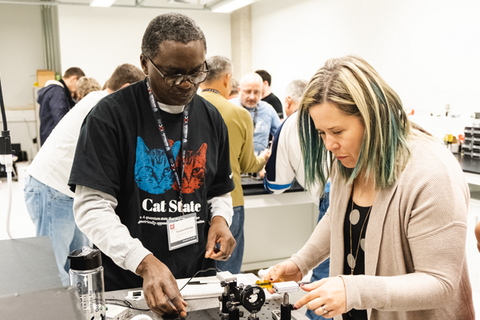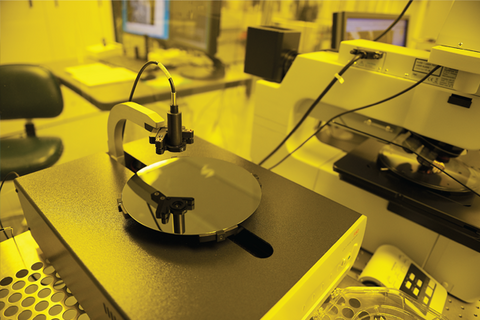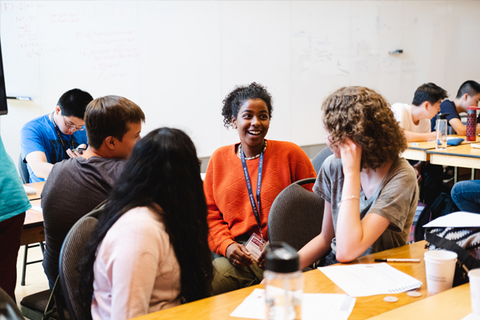News
New open-source software is greater than the sum of its parts
Modular software brings together a variety of expertise to create a new method to realistically model and analyze quantum cryptography.
Accurate models of real-world scenarios are important for bringing theoretical and experimental research together in meaningful ways. Creating these realistic computer models, however, is a very large undertaking. Significant amounts of data, code, and expertise across a wide range of intricate areas are needed to create useful and comprehensive software.
Dr. Bradley Hauer and Dr. Christopher Wilson awarded NSERC Quantum Alliance grant
Congratulations to Dr. Bradley Hauer and Dr. Christopher Wilson, both faculty members at the Institute for Quantum Computing (IQC) and professors in the Department of Electrical and Computer Engineering at the University of Waterloo, who have been awarded $2.7 M through the NSERC Alliance – Quantum grant for their project Next-generation technology to access new regimes of quantum sensing.
IQC celebrates community outreach efforts with David Johnston Award for Scientific Outreach 2024
The Institute for Quantum Computing (IQC) is excited to announce this year's recipients of the David Johnston Award for Scientific Outreach: Amit Anand, Everett Patterson and Fiona Thompson. The awards are given annually to recognize and celebrate students who have demonstrated exceptional dedication to enhancing public understanding of quantum research through outreach and community involvement.
Events
Quantum for Educators
QNC building, 200 University Ave. Room 0101, Waterloo
Quantum for Educators (formerly known as Schrödinger's Class) equips you with the ability to bring quantum science into your classrooms and confidently teach your students about quantum physics, quantum computing, quantum cryptography, and more.
Proper versus Improper Quantum PAC learning
CS/Math Seminar - Pulkit Sinha, IQC
QNC building, 200 University Ave. Online only, Waterloo
A basic question in the PAC model of learning is whether proper learning is harder than improper learning. In the classical case, there are examples of concept classes with VC dimension d that have sample complexity Ω(d/ϵ log (1/ϵ)) for proper learning with error ϵ, while the complexity for improper learning is O(d/ϵ). One such example arises from the Coupon Collector problem.
Motivated by the efficiency of proper versus improper learning with quantum samples, Arunachalam, Belovs, Childs, Kothari, Rosmanis, and de Wolf (TQC 2020) studied an analogue, the Quantum Coupon Collector problem. Curiously, they discovered that for learning size k subsets of [n] the problem has sample complexity Θ(k log (min{k,n−k+1})), in contrast with the complexity of Θ(k log k) for Coupon Collector. This effectively negates the possibility of a separation between the two modes of learning via the quantum problem, and Arunachalam et al. posed the possibility of such a separation as an open question.
In this work, we first present an algorithm for the Quantum Coupon Collector problem with sample complexity that matches the sharper lower bound of (1−o(1)) k ln( min{k,n−k+1} ) shown recently by Bab Hadiashar, Nayak, and Sinha (IEEE TIT 2024), for the entire range of the parameter k. Next, we devise a variant of the problem, the Quantum Padded Coupon Collector. We prove that its sample complexity matches that of the classical Coupon Collector problem for both modes of learning, thereby exhibiting the same asymptotic separation between proper and improper quantum learning as mentioned above.
IQC Student Seminar Featuring Itammar Steinberg, Weizmann Institute of Science
Entanglement distillation and DIQKD
QNC building, 200 University Ave. Room 1201, Waterloo
Quantum entanglement can be quantified in many ways, some of which bear clear operational meanings. The Distillable Entanglement and DIQKD rate are two such measures, speculated to be equivalent as stated by the Revised Peres Conjecture (Friedman and Leditzky, 21). Our research lays foundations to the conjecture’s proof, most notably using the notion of ‘private states’, a family of quantum states that arise naturally in the context of QKD. Asking questions such as “what kind of private state can be resulted from a certain DIQKD protocol?”, we were able to provide simple sufficient conditions for the Revised Peres Conjecture to hold.
